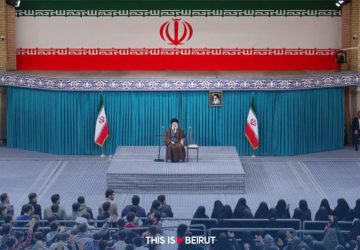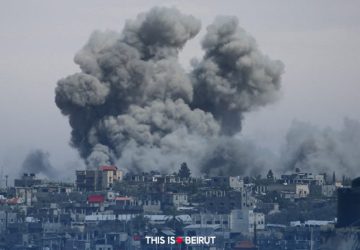The US has paused bomb shipments to Israel on Wednesday, whilst Israelis launched airstrikes across Gaza, and Cairo negotiators rush to establish “last chance” ceasefire deal.
Israel struck targets in the Gaza Strip on Wednesday after seizing the main border crossing with Egypt, where negotiators were working to make good on their “last chance” to cement a ceasefire deal.
Israeli tanks moved into Rafah on Tuesday, capturing the crossing that has served as the main conduit for aid into the besieged Palestinian territory.
The White House condemned the interruption to humanitarian deliveries, with a senior US official later revealing Washington had paused a shipment of bombs last week after Israel failed to address US concerns over its Rafah plans.
The push into the southern city, which is packed with displaced civilians, came as negotiators and mediators met in Cairo to try and hammer out a hostage release deal and truce in the seven-month war between Israel and Hamas.
A senior Hamas official, requesting anonymity, warned this would be Israel’s “last chance” to free the scores of hostages still in militants’ hands.
Egypt’s state-linked Al-Qahera News reported Tuesday that mediators from Qatar, the United States and Egypt were meeting with a Hamas delegation.
It later reported that “all parties” including Israel had agreed to resume talks. Israeli Prime Minister Benjamin Netanyahu said earlier that his country’s delegation was already in Cairo.
The United States said it was hopeful the two sides could “close the remaining gaps”.
Ongoing strikes
Despite the Cairo talks, witnesses and a local hospital reported Israeli strikes across the Gaza Strip overnight into Wednesday morning, including around Rafah.
One strike on an apartment in devastated Gaza City killed seven members of the same family and wounded several other people early Wednesday, the Al-Ahli hospital said.
Israel’s Rafah operation began hours after Hamas announced late Monday it had accepted a truce proposal — one Israel said was “far” from what it had previously agreed to.
Still, the announcement prompted cheering crowds to take to the streets in Gaza.
Israeli army footage showed tanks taking “operational control” of the Palestinian side of the Rafah crossing on Tuesday.
UN humanitarian office spokesman Jens Laerke said Israel had denied his organization access to both Rafah and Kerem Shalom — another major aid crossing on the border with Israel.
UN Secretary-General Antonio Guterres urged Israel to “immediately” reopen both crossings, calling the closures “especially damaging to an already dire humanitarian situation”.
White House Press Secretary Karine Jean-Pierre offered a similar view, calling the closures “unacceptable”.
She said the Kerem Shalom crossing was expected to reopen on Wednesday.
Hours later, a senior Biden administration official speaking on condition of anonymity revealed the United States had “paused one shipment of weapons last week” after Israel failed to address its concerns over the Rafah incursion, which Washington has vocally opposed.
The shipment had consisted of more than 3,500 heavy-duty bombs, the official said.
The Pentagon, meanwhile, said the US military had completed construction of an aid pier off Gaza’s coast, but weather conditions mean it is currently unsafe to move the two-part facility into place.
International alarm has been building about the consequences of an Israeli ground invasion of Rafah, where the United Nations says 1.4 million people are sheltering.
Aid groups have warned that the coastal “humanitarian area” of Al-Muwasi — where Israel’s military told people to go before it launched its Rafah operation — is unprepared to handle the influx.
With AFP





